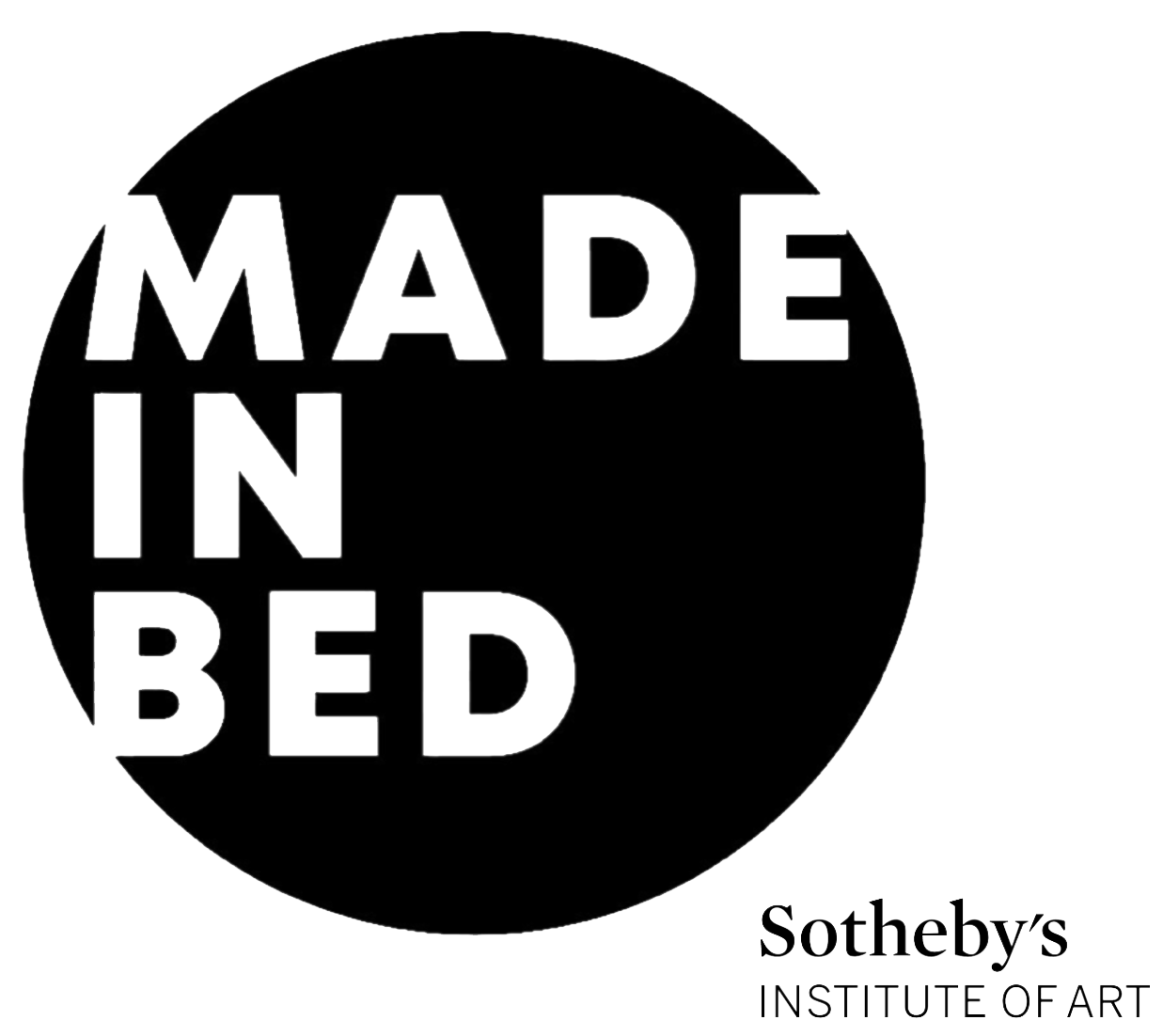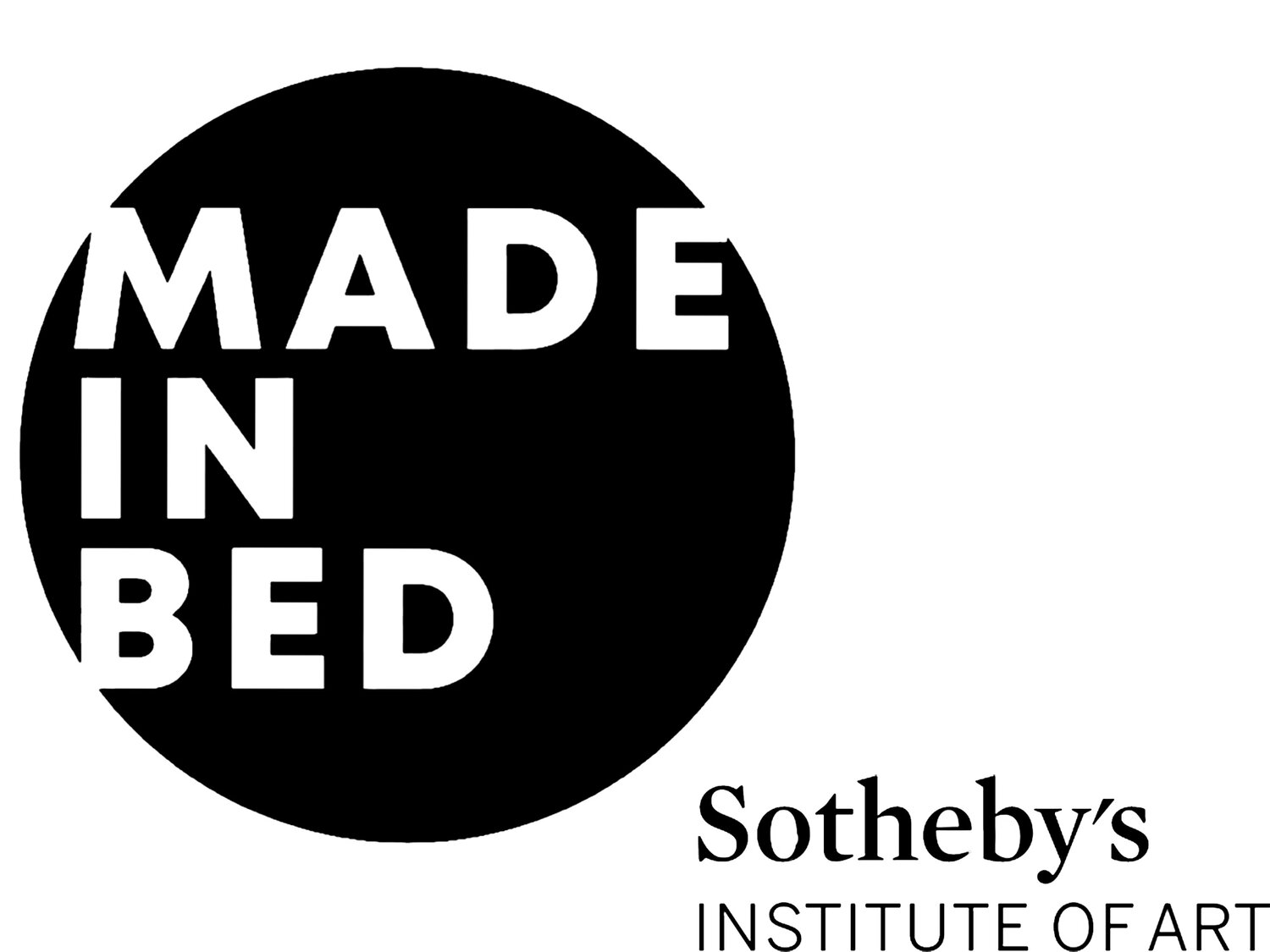Rees Wilson in Conversation with Uzo Njoku
Through her education and other life experiences, Uzo Njoku has been given the tools to create a unique and successful brand for herself as a contemporary artist. That brand has not only caught the attention of members of the art world, but also, a larger audience through social media and the luxury and fashion industry.
The artist with her work 800-656-HOPE.
I, Rees Wilson, first met Uzo Njoku in an Arts Administration class at the University of Virginia (our mutual alma mater). I remember our professor proudly distributing Njoku’s latest project from that year, The Bluestocking Society, an inclusive colouring book. Her ability to depict black women without the use of color was (and still is) astounding, and I remember thinking in that classroom “wow, she’s really going somewhere.”
Njoku was taking the class, as she states, to understand “what happens in the background. What makes the arts possible for [artists]?” We spoke on the importance for artists to understand the industry, mostly to know which opportunities to take and which to avoid, who to listen to and who not listen to. Although she receives guidance from dealers and advisors within the industry, Njoku has kept complete creative control over her brand. When discussing how she navigates this balance between receiving outside direction and her own internal desires, she says: “I can create different works. I can create things for friends and create originals. I can do it. Just because you say I can’t doesn’t mean I can’t do it. You have to believe in yourself.”
When Life Gives You Oranges.
Njoku is best known for her works depicting Ankara patterns and femininity, especially of black women. When speaking about the Ankara patterns, Njoku stated that they are “our way of life. If you go to West Africa, you'll see a lot of people on the streets wearing [the fabric.] It is so involved in the culture over there. Even though I am Nigerian, I was born in America. So [the fabric] is my way of bridging the two cultures.”
Although her ties are in the US and Nigeria, Njoku found much of her artistic drive during a study abroad semester at University of Arts London. Njoku acknowledges that her time in London allowed her to take her art in a more conceptual direction. The curriculum also took her artwork beyond white cube spaces and into, for example, a rundown club in South London.
2020 has brought new opportunities, inspirations and of course fears for Njoku. When discussing the Black Lives Matter movement and civil unrest, Njoku reflected on there being “a heavier gaze on black artists and black works, which is good for everybody. But sometimes you have to kind of think: are [institutions] just doing this to save face or do they actually care about the bodies? I will say it definitely has brought more attention to me. It felt kind of weird, and I thought ‘wow, am I profiting off some people’s deaths?’ That's what it felt like to me.” In response to her own reaction, Njoku created a piece following the death of Oluwatoyin Salau to raise donations for her friends and other displaced artists.
Ghana Must Go.
When asked what advice Njoku would have liked to have received earlier on in her career, she answered: copyright. “Especially as you work with companies or do commissions,” she said. “I had to learn the hard way as I went on. I've been short changed or haven’t been paid and different things like that. So now I have my own contracts. I have a lawyer. I'm protected in a way that before I wasn't.”
We finished the interview by discussing the importance of an interdisciplinary education for artists. Njoku’s knowledge of business has clearly taken her far as an artist and has allowed her to determine her own path. Since the art business course we took together, Njoku has created UzoArt LLC and has expanded her work into prints, mugs, tote bags, candles and (soon to come) home decor. This year alone, Njoku has had one of her prints become a widely-shared meme on Twitter, has collaborated with Yves Saint Laurent Beauty to reimagine their signature Libre Eau de Parfum, and will be at New York Fashion Week showcasing her recent venture into clothing.
Thank you, Uzo.
Follow UzoArt on Instagram or visit her website.
Imagery courtesy of the artist.
Rees Wilson,
Contributor, MADE IN BED




